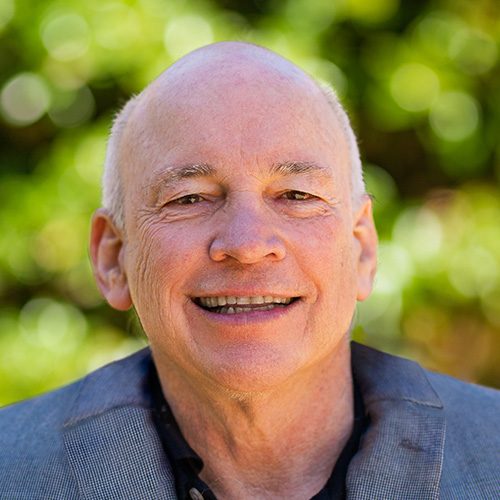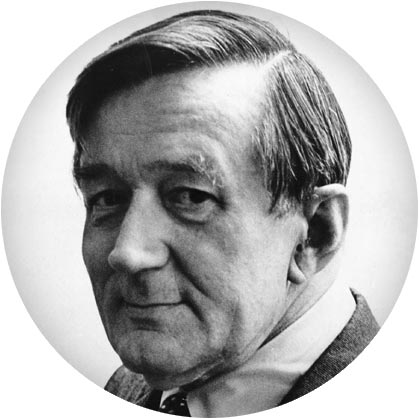The Polykarp Kusch Lecture Series
Concerns of the Lively Mind
UTD Geologic Studies of the Mariana Trench and the Challenger Deep

Dr. Robert Stern
Professor, Geosciences
School of Natural Sciences and Mathematics
Thursday, April 21, 2022
2-3 p.m.
SSA Auditorium 13.330
The public is invited to attend this free lecture.
Clues to Earth’s geological history – and possible future – can be found on the planet’s surface deep beneath the oceans, including in the Mariana Trench, located in the western Pacific Ocean south of Japan. Using manned research submarines and tethered remotely operated submersible vehicles, UT Dallas geoscientists have made several discoveries about the unique biology and geology in and around the trench, which contains the Challenger Deep, the deepest point on Earth’s surface at more than seven miles down.
Dr. Robert Stern
Dr. Robert Stern leads UT Dallas’ participation in a joint U.S.-Japan Mariana Trench research group, which over several years has involved faculty and students in groundbreaking oceanographic studies.

Dr. Polykarp Kusch
Dr. Polykarp Kusch was Nobel laureate in physics in 1955 and came to The University of Texas at Dallas in 1972.
At UT Dallas, he was Regental Professor and served on the physics faculty. His distinguished science career was complemented by his superb teaching. He delighted students with his presentations of physics experiments in his “Phenomena of Nature” classes.
Before coming to UT Dallas, Dr. Kusch had served as professor, vice president, provost and dean of faculties at Columbia University.
When he retired in 1982, UT Dallas established a program of annual lectures with the theme “Concerns of the Lively Mind” to honor Dr. Kusch.
Kusch Lectures
| 2024 | Alain Bensoussan | Research in Management Science and the Importance of Mathematics |
| 2023 | Mark W. Spong | Robotics: Past, Present, Future |
| 2022 | Robert Stern | UTD Geologic Studies of the Mariana Trench and the Challenger Deep |
| 2021 | Denise Park | The Amazing Aging Mind: A Scientific Journey |
| 2019 | Alex R. Piquero | Nothing Fake Here: Debunking the Immigration/Crime Relationship |
| 2018 | Zsuzsanna Ozsváth | Our Journey Home: My Life and Work in Dallas |
| 2017 | Hobson Wildenthal | The Lifecycle of a Science from Conception to Metamorphosis |
| 2016 | Suresh P. Sethi | Conflicts in Supply Chains and Contracts that Restore Efficiency |
| 2015 | R. David Edmunds | Defending the Omaha Nation |
| 2014 | Ray H. Baughman | Nanotechnology for Fun and Profit |
| 2013 | Bhavani Thuraisingham | Reactively Adaptive Malware |
| 2012 | Aage Møller | The Malleable Brain |
| 2011 | Ram Rao | From Perfection to Retail Competition |
| 2010 | Rainer Schulte | Life as Translation |
| 2009 | John Hoffman | The Phoenix Mission to Mars |
| 2008 | George McMechan | 3-D Imaging of Earth’s Energy Resources |
| 2007 | Alice J. O’Toole | How We Represent and Recognize Faces |
| 2006 | Edward J. Harpham | Adam Smith’s Lost World of Gratitude |
| 2005 | Lawrence J. Overzet | Industrial Plasmas: Enabling the Future |
| 2004 | Clay Reynolds | A Cow Can Moo: The Irony of the Artistic Lie |
| 2003 | Roderick A. Heelis | Our Space Environment |
| 2002 | Rajiv Banker | Pay for Performance: Myth or Reality? |
| 2001 | Emily Tobey | The Bionic Ear: Connecting Technology to Societal Change |
| 2000 | Stephen Rabe | Debate Without End: Vietnam – 25 Years After |
| 1999 | Irving Hoch | Urban Population and the Quality of Life |
| 1998 | Hanna Ulatowska | Narrative in Human Experience |
| 1997 | A. Dean Sherry | From Molecules to Man: A History of Nuclear Magnetic Resonance (NMR) |
| 1996 | Hal Sudborough | Permutatios, Pancakes and Philogeny |
| 1995 | Robert Xavier Rodriguez | The Mystery of the Two Worlds |
| 1994 | Frank Bass | The Evolution of a General Theory of the Diffusion of Technological Innovations |
| 1993 | Bert Moore | Passions of the Mind |
| 1992 | Gerald Scully | Institutional Technology and Economic Progress |
| 1991 | Brian J. L. Berry | Deeper Societal Structures – Glimpses Through a Macroscope |
| 1990 | William Hanson | Our Solar System: A Perspective |
| 1989 | Robert Corrigan | Tragedy – The Tragic, and The Historical Moment |
| 1988 | Sandy Friel-Patti | The University in the Community |
| 1987 | R. Chandresakaran | Education of High Quality: Can This be Achieved? |
| 1986 | Wolfgang Rindler | Gravitation: From Newton to Einstein |
| 1985 | Anthony Champagne | Science and the Edges of Life |
The Polykarp Kusch Lecture Series
Concerns of the Lively Mind
UTD Geologic Studies of the Mariana Trench and the Challenger Deep

Dr. Robert Stern
Professor, Geosciences
School of Natural Sciences and Mathematics
Thursday, April 21, 2022
2-3 p.m.
Student Services Building Addition Auditorium (SSA 13.330)
The public is invited to attend this free lecture.
Clues to Earth’s geological history – and possible future – can be found on the planet’s surface deep beneath the oceans, including in the Mariana Trench, located in the western Pacific Ocean south of Japan. Using manned research submarines and tethered remotely operated submersible vehicles, UT Dallas geoscientists have made several discoveries about the unique biology and geology in and around the trench, which contains the Challenger Deep, the deepest point on Earth’s surface at more than seven miles down.
Dr. Robert Stern
Dr. Robert Stern leads UT Dallas’ participation in a joint U.S.-Japan Mariana Trench research group, which over several years has involved faculty and students in groundbreaking oceanographic studies.

Dr. Polykarp Kusch
Dr. Polykarp Kusch was Nobel laureate in physics in 1955 and came to The University of Texas at Dallas in 1972.
At UT Dallas, he was Regental Professor and served on the physics faculty. His distinguished science career was complemented by his superb teaching. He delighted students with his presentations of physics experiments in his “Phenomena of Nature” classes.
Before coming to UT Dallas, Dr. Kusch had served as professor, vice president, provost and dean of faculties at Columbia University.
When he retired in 1982, UT Dallas established a program of annual lectures with the theme “Concerns of the Lively Mind” to honor Dr. Kusch.
Kusch Lectures
| 2024 | Alain Bensoussan | Research in Management Science and the Importance of Mathematics |
| 2023 | Mark W. Spong | Robotics: Past, Present, Future |
| 2022 | Robert Stern | UTD Geologic Studies of the Mariana Trench and the Challenger Deep |
| 2021 | Denise Park | The Amazing Aging Mind: A Scientific Journey |
| 2019 | Alex R. Piquero | Nothing Fake Here: Debunking the Immigration/Crime Relationship |
| 2018 | Zsuzsanna Ozsváth | Our Journey Home: My Life and Work in Dallas |
| 2017 | Hobson Wildenthal | The Lifecycle of a Science from Conception to Metamorphosis |
| 2016 | Suresh P. Sethi | Conflicts in Supply Chains and Contracts that Restore Efficiency |
| 2015 | R. David Edmunds | Defending the Omaha Nation |
| 2014 | Ray H. Baughman | Nanotechnology for Fun and Profit |
| 2013 | Bhavani Thuraisingham | Reactively Adaptive Malware |
| 2012 | Aage Møller | The Malleable Brain |
| 2011 | Ram Rao | From Perfection to Retail Competition |
| 2010 | Rainer Schulte | Life as Translation |
| 2009 | John Hoffman | The Phoenix Mission to Mars |
| 2008 | George McMechan | 3-D Imaging of Earth’s Energy Resources |
| 2007 | Alice J. O’Toole | How We Represent and Recognize Faces |
| 2006 | Edward J. Harpham | Adam Smith’s Lost World of Gratitude |
| 2005 | Lawrence J. Overzet | Industrial Plasmas: Enabling the Future |
| 2004 | Clay Reynolds | A Cow Can Moo: The Irony of the Artistic Lie |
| 2003 | Roderick A. Heelis | Our Space Environment |
| 2002 | Rajiv Banker | Pay for Performance: Myth or Reality? |
| 2001 | Emily Tobey | The Bionic Ear: Connecting Technology to Societal Change |
| 2000 | Stephen Rabe | Debate Without End: Vietnam – 25 Years After |
| 1999 | Irving Hoch | Urban Population and the Quality of Life |
| 1998 | Hanna Ulatowska | Narrative in Human Experience |
| 1997 | A. Dean Sherry | From Molecules to Man: A History of Nuclear Magnetic Resonance (NMR) |
| 1996 | Hal Sudborough | Permutatios, Pancakes and Philogeny |
| 1995 | Robert Xavier Rodriguez | The Mystery of the Two Worlds |
| 1994 | Frank Bass | The Evolution of a General Theory of the Diffusion of Technological Innovations |
| 1993 | Bert Moore | Passions of the Mind |
| 1992 | Gerald Scully | Institutional Technology and Economic Progress |
| 1991 | Brian J. L. Berry | Deeper Societal Structures – Glimpses Through a Macroscope |
| 1990 | William Hanson | Our Solar System: A Perspective |
| 1989 | Robert Corrigan | Tragedy – The Tragic, and The Historical Moment |
| 1988 | Sandy Friel-Patti | The University in the Community |
| 1987 | R. Chandresakaran | Education of High Quality: Can This be Achieved? |
| 1986 | Wolfgang Rindler | Gravitation: From Newton to Einstein |
| 1985 | Anthony Champagne | Science and the Edges of Life |
© The University of Texas at Dallas
800 W. Campbell Rd., Richardson, TX 75080-3021